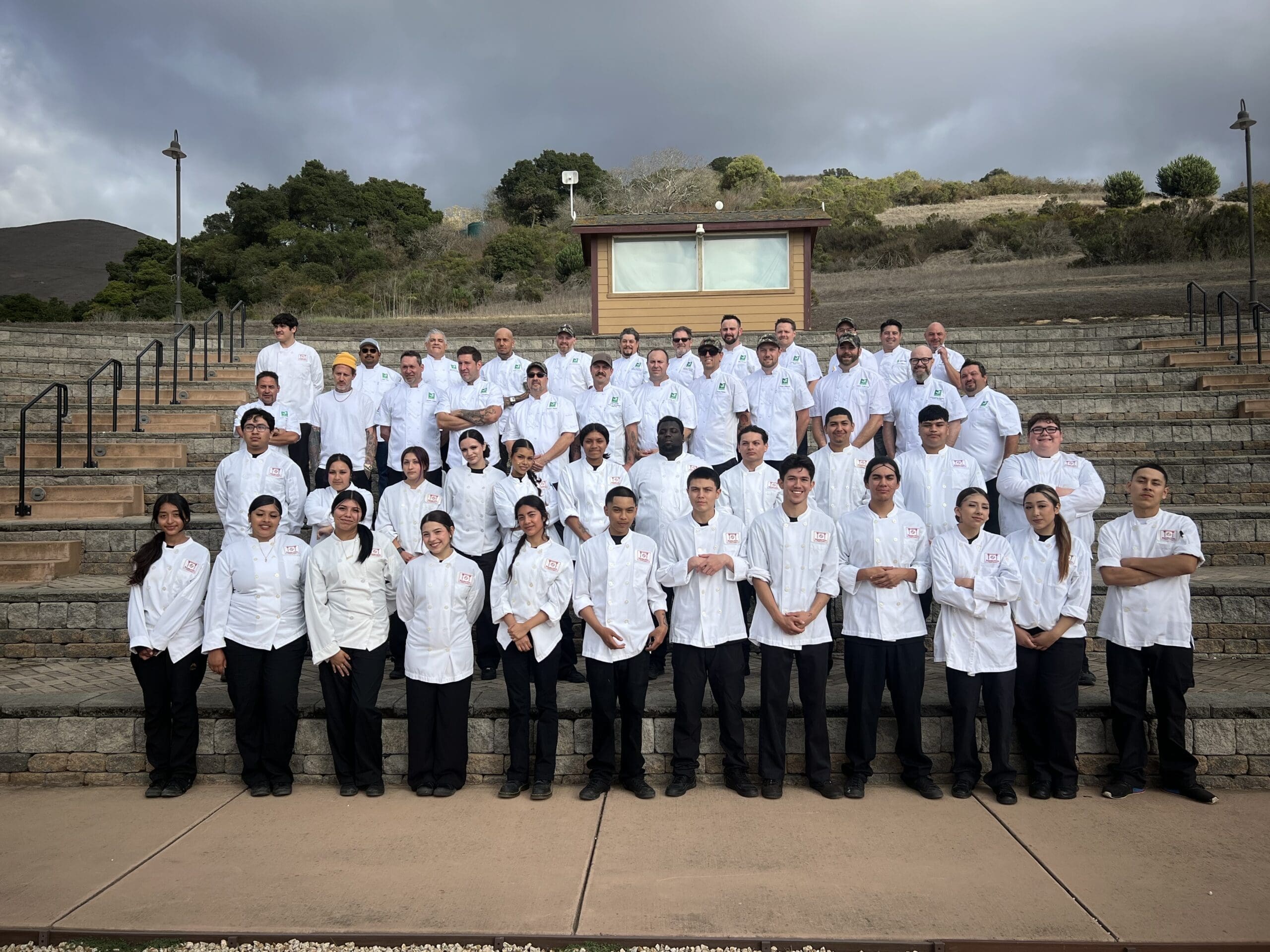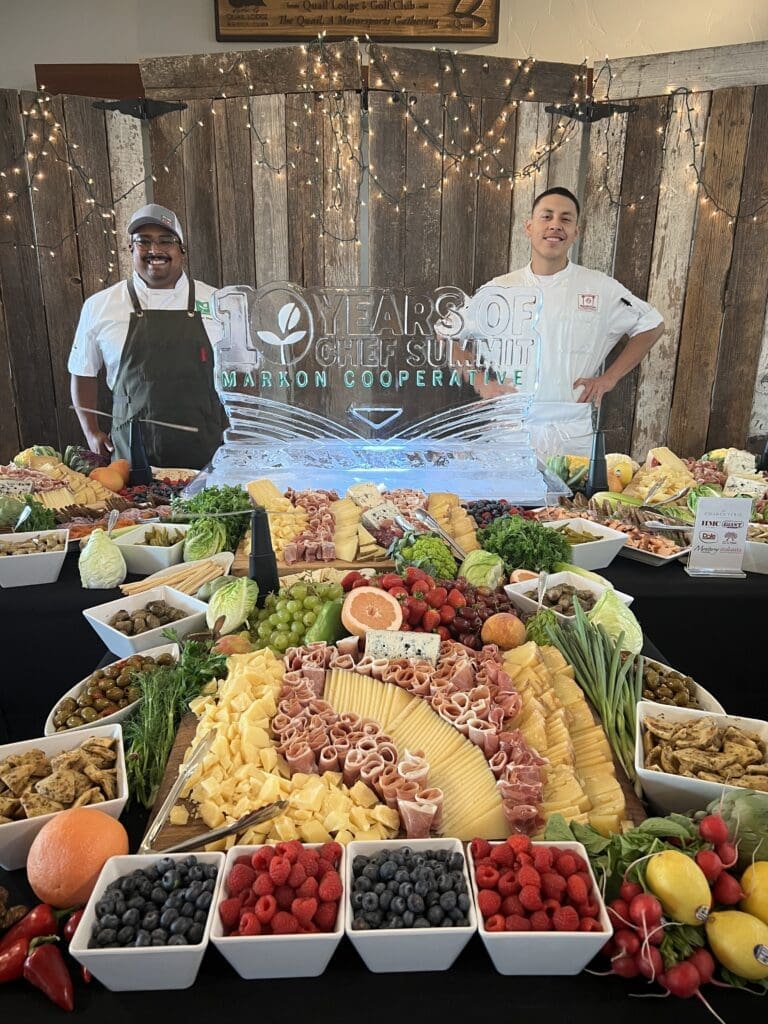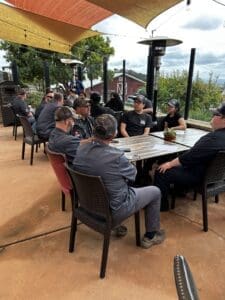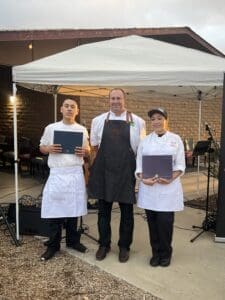
In the Salinas Valley, the light hits differently. Maybe it’s the way it glances off rows of strawberries and artichokes or the way it settles into the dusty horizon at the end of a long day. Here, food doesn’t just grow; it means something. And nobody understands that better than Markon Cooperative, the powerhouse behind some of the freshest, most responsibly sourced produce in North America.
Markon has built its reputation by delivering farm-to-table fruits and vegetables to foodservice operations that focus on the quality of the food on the plate. But Markon’s roots also run deep into sustainability, innovation and education. That’s where its partnership with Rancho Cielo’s Drummond Culinary Academy (DCA) comes in, taking center stage once a year at Taste of Markon.
This Monterey County event has quietly evolved from a local industry gathering into a full-on culinary happening over the past decade. It’s equal parts creativity lab, agricultural celebration and culinary classroom. It’s where professionals and students collide in the best possible way.

Nearly 20 chefs from across North America packed the DCA kitchen last Thursday, sleeves rolled, knives flashing, ingredients stacked neatly like guarded treasures.
Hovering amid the controlled chaos were 25 students—wide-eyed and ready. Under the guidance of DCA Executive Chef Estevan Jimenez, they were prepared to jump into the fray; no handholding was necessary. Many of these students already know or are learning food safety, sanitation and knife skills. That freed them to get to the good stuff—the artistry.

“It’s special when students get to see a different chef’s perspective on food,” Jimenez says. “Your own technique as a chef is an accumulation of everything you’ve seen, everything you’ve cooked, and who you’ve cooked with. Every chef is different. You give ten chefs the same ten ingredients, you’ll get ten different dishes.”
And he’s not exaggerating. One standout this year: a grilled grapefruit salad with shaved fennel, peeled celery, goat cheese and espresso-dusted pecans from Arizona, all balanced on a bed of hydroponically grown watercress that is so clean and spicy, it redefines what microgreens can be.
“Sometimes, food can be complicated, with ingredients conflicting or, as the saying goes, ‘too many hands have been on it,”’ DCA GM Wanda Straw explains. “However, with Markon, they continue to improve, and each year it gets better.”
The students worked side by side with the visiting chefs, absorbing every move, every technique, every mistake and triumph.
“Just exposing the students to different things is really cool,” Jimenez says. “We feature what’s special to Rancho Cielo—our honey, our produce—and the Markon chefs bring what’s special to them, like those pecans.”
It’s a masterclass in collaboration and respect for ingredients. And while Taste of Markon might sound exclusive, the real action isn’t about the guests sipping wine; it happens during the ensuing days, when students see and taste food in ways they never have before.
“It was so busy, and they worked hard,” Straw says. “There was a lot of clean up, but seeing them interact with the chefs and the chefs do such a great job of engaging with them and talking to them as professionals was impressive. The experience carries over into their performance on the academic side; it will also carry over to their performance in culinary, and we’ll be even better at [future] events.”

Then there are the moments that catch you off guard—the emotional ones that remind you why all this matters. Midway through the night, Colorado chef Chris Weils announced two $1,000 unrestricted scholarships for standout DCA students.
Meanwhile, every dollar raised from the event goes to the DCA program. Additionally, the Markon chefs leave behind tons of food, brand-new gear and tools that make a tangible difference—like two mini fryers and a cotton candy maker this year.
“That helps us make more creative food,” Straw says. “When I started nine years ago, the kitchen was pretty bare. But Markon has helped us grow into something exciting. We all work together really well, and we aim to improve every year.”
At its core, Taste of Markon is a story about connection. Between the people who grow the food, those who cook it and the students just beginning to understand what that means. Bringing together great ingredients, talented chefs and eager young minds creates something far more impactful than just a meal.



